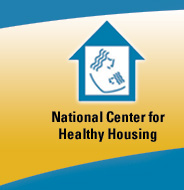|
Visiting Nurses
The visiting nurse provides home nursing, hygiene and general assistance with the essential acts of life.
Her objective is the maintenance, integration or reintegration of a patient with loss of autonomy in terms of family and social life.
Finding someone to give him an injection and go, has no interest. However, the relationship that we will build with an older person is part of care and quality of its health.
An old lady to whom I help with cleaning, I can also cut her hair, dress her, sit her in front of the television set to watch a show.
I want to give back to the old desire to please and to be pleased. Thus, patients age more slowly.
Gerontology and human relationship are central to the therapeutic relationship. By his touch, his personal qualities, his smile,
his availability ... a nurse can play a key role in the gradual restoration of a frail person with a disability.
The visiting nurse is also in constant contact with the doctor.
By the looks that she focuses on each patient, by the relation that this professional has with him, she is able to alert him
each time a particular symptom appears.
Home nursing cares are varied, as prescribed by your doctor, she will do:
- treatment of bedsores
- injections, including insuling for diabetics
- monitoring of probes
- infusions
- enemas
- etc
The nurse is also responsible for coordinating the response of caregivers and possibly other medical auxiliaries (therapists,
social workers ...). It is not uncommon that a nurse plays a role in resolving family problems. She helps to analyze the
disruptive behavior of an elderly person, to prevent acts of violence being committed against a cripple. The richness of human
relations between a visiting nurse and her patients would surprise a few. It is permissible to require the punctuality of
a nurse. It is anomalous that an aged person expects her visit all day.
Home Nursing care for the elderly
What is their role?
- Provide home nursing care and general hygiene, assistance with the essential acts of life for people over age 60 or dependent
patients to avoid hospitalization of the elderly in the acute phase of disease can be treated at home,
- To facilitate returns home after hospitalization, prevent or delay the progressive deterioration of the status of persons and their admission to services or long stay in the sections of medical cure nursing homes.
It is composed of nurses who perform nursing procedures and coordinate intervention aides and pedicures, or possibly other paramedics.
What is the cost of a visiting nurse?
Those aged over 60 only need a prescription to be supported by social security. This requirement is used to obtain the agreement of the medical health insurance. If your body does not respond within ten days, the demand for care can be considered as having received a favorable opinion.
Support and the payment method will be different depending on whether you will use a public nursing service or a private practice or an association that specializes in nursing home.
The liberal nurses shall be paid directly by the elderly, which will be reimbursed by Social Security. Some of the cost of the service remains the responsibility of the elderly.
Unless of course the elderly person has a support of 100%, the most frequent case - so it is then fully reimbursed by Social Security. Often, the nurse is set by third-party payer to Medicare.
The Universal Health Coverage is taking over today on welfare for the poor.
The work of a nurse should not be confused with that of the caregiver or home help. The toilet is a medical procedure if it
can respect the following four criteria: "hygiene, surveillance, prevention and observation".
Unlike many Western countries where the case for monitoring nursing home is a mandatory piece, the practice is left to the
nurses themselves. The medical records are identified where all the care received by patients are in institutions.
At home, each person has its own recipe and personal uses either a file or a plug connection, a calendar, or loose sheets,
or a notebook to follow through.
|

